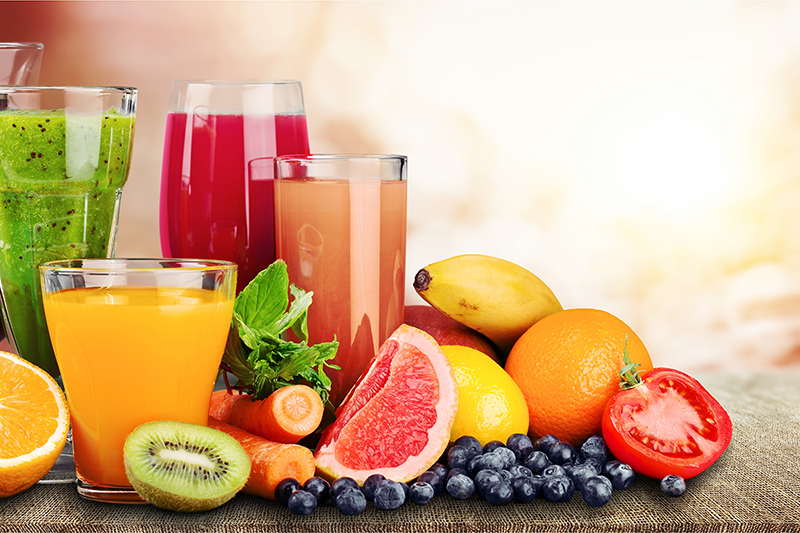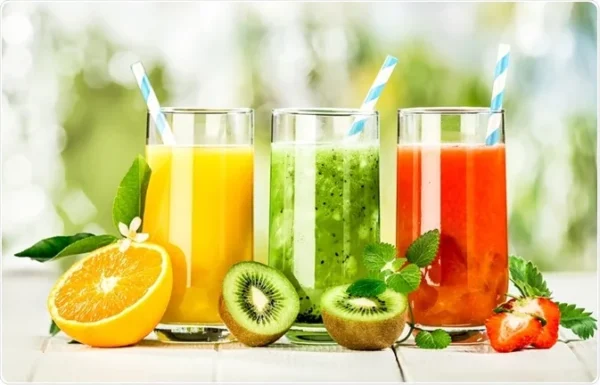In today’s fast-paced world, where convenience often overrides nutrition, the simple act of drinking Fresh Fruit Juice offers a refreshing return to nature. With its vibrant colors, refreshing flavors, and countless health benefits, Fresh Fruit Juice is more than just a beverage—it’s a lifestyle choice that promotes wellness from the inside out.
This comprehensive guide dives into the world of Fresh Fruit Juice, exploring its benefits, preparation methods, and the best fruits to use, all while keeping your health and taste buds in mind.
What Is Fresh Fruit Juice?
Fresh Fruit Juice refers to the liquid extracted directly from ripe, natural fruits without the addition of artificial preservatives, sweeteners, or concentrates. Unlike many packaged juices that are pasteurized and mixed with sugar, Fresh Fruit Juice retains the natural nutrients, enzymes, and flavors of the original fruit.
Whether made from oranges, apples, pineapples, or a medley of your favorite seasonal fruits, this juice delivers a potent burst of vitamins and minerals your body craves.
Health Benefits of Fresh Fruit Juice
One of the strongest arguments for incorporating Fresh Fruit Juice into your diet is its incredible array of health benefits. From enhancing your immune system to improving digestion, the perks are plentiful.
1. Rich in Essential Vitamins and Minerals
Fruits like oranges, strawberries, and kiwis are loaded with Vitamin C—a crucial antioxidant that supports immune health, collagen production, and iron absorption. Apples, on the other hand, are high in potassium and polyphenols that support heart health.
By drinking a glass of Fresh Fruit Juice daily, you gain a concentrated source of these nutrients in a delicious, easy-to-digest form.
2. Supports Immune Health
Fresh Fruit Juice made from citrus fruits and berries is especially beneficial for strengthening your immune system. The vitamin C and phytonutrients present in these juices help your body defend itself against infections and diseases.
Adding ginger or turmeric to your Fresh Fruit Juice can further enhance its anti-inflammatory and immune-boosting properties.
3. Aids Digestion
Certain juices, such as those made from pineapples and papayas, contain natural enzymes like bromelain and papain that aid in breaking down proteins and supporting gut health. When consumed on an empty stomach, Fresh Fruit Juice can help stimulate digestion and improve bowel regularity.
4. Promotes Skin Health
Your skin often reflects your internal health. The antioxidants in Fresh Fruit Juice help fight free radicals responsible for aging and skin damage. Carrot and beetroot juice, in particular, are rich in beta-carotene, which supports skin cell regeneration and gives your skin a natural glow.
5. Hydration and Energy Boost
Unlike sugary sodas or caffeine-laden energy drinks, Fresh Fruit Juice hydrates your body while providing a natural energy lift. It’s the perfect pre-workout drink, packed with natural sugars, electrolytes, and micronutrients to keep you energized and focused.

Best Fruits for Juicing
Choosing the right fruits is essential to crafting the perfect glass of Fresh Fruit Juice. Here are some of the top contenders:
1. Oranges
Perhaps the most popular juicing fruit, oranges offer a sweet, tangy flavor packed with vitamin C, potassium, and folate. They also have a high water content, making them ideal for juicing.
2. Apples
Mildly sweet and hydrating, apples serve as a great base for most juice blends. They’re rich in fiber, antioxidants, and vitamin C, especially when juiced with the skin on.
3. Pineapples
Tropical and sweet, pineapples provide a unique flavor and are rich in bromelain—an enzyme known to reduce inflammation and aid digestion.
4. Watermelon
Watermelon juice is extremely hydrating and refreshing, especially in the summer months. It contains citrulline, an amino acid that supports heart health and exercise performance.
5. Berries
Blueberries, strawberries, raspberries, and blackberries are antioxidant powerhouses. Although they yield less juice, they’re perfect for mixing with other fruits for flavor and nutrition.
How to Make Fresh Fruit Juice at Home
Making Fresh Fruit Juice is surprisingly simple and allows you to control what goes into your drink.
Equipment You’ll Need:
- A juicer (centrifugal or masticating)
- Blender (optional for smoothie-style juices)
- Fine mesh strainer or cheesecloth
- Knife and cutting board
Basic Steps:
- Choose Your Fruits: Select fresh, ripe fruits. Organic options are best if available.
- Wash Thoroughly: Remove any dirt, pesticides, or wax.
- Peel and Chop: Depending on the fruit, peel and chop into manageable pieces.
- Juice or Blend: Use a juicer or blender. If using a blender, add a little water to facilitate blending, then strain.
- Serve Immediately: Fresh Fruit Juice is best enjoyed immediately to preserve its nutrients.
Juice Recipe Example: Immunity Booster
- 2 oranges
- 1 carrot
- 1-inch ginger
- 1/2 lemon (juiced)
- 1 apple
Juice all ingredients and serve chilled for a refreshing immunity shot.
Tips for Storing Fresh Fruit Juice
Although it’s best to drink your Fresh Fruit Juice right away, you can store it for short periods if necessary.
- Use airtight containers like glass jars to reduce oxidation.
- Refrigerate immediately and consume within 24–48 hours.
- Add lemon juice as a natural preservative to slow nutrient degradation.
Fresh Fruit Juice vs. Packaged Juice
You might wonder: why go through the hassle of making juice at home when supermarkets offer plenty of ready-to-drink options? The answer lies in nutrition and quality.
Fresh Fruit Juice:
- Contains natural enzymes and nutrients
- Free from added sugars and preservatives
- Made from whole, ripe fruits
- Better taste and aroma
Packaged Juice:
- Often pasteurized, destroying some nutrients
- Contains added sugars, flavors, and preservatives
- Lower nutritional value
- Longer shelf life but compromised quality
Making Fresh Fruit Juice at home ensures you’re getting maximum health benefits with none of the hidden ingredients.
When and How Much to Drink
While Fresh Fruit Juice is healthy, moderation is key. Overconsumption—even of natural sugar—can lead to spikes in blood sugar levels. Here’s how to enjoy it wisely:
- Best time to drink: In the morning or between meals
- Ideal portion: 6 to 8 ounces per serving
- Limit frequency: 1–2 times per day for most adults
Pairing juice with a source of fiber (like whole grain toast or nuts) helps moderate sugar absorption and keeps you fuller longer.
Juicing for Special Diets
Fresh Fruit Juice can be adapted to fit various dietary needs:
- Detox Diets: Combine fruits with veggies like cucumber and celery.
- Low Sugar: Use berries and green apples instead of high-sugar fruits.
- Weight Loss: Incorporate low-calorie options like watermelon, grapefruit, and lemon.
- Athletic Performance: Add coconut water for natural electrolytes.
Final Thoughts
Fresh Fruit Juice is more than a trendy drink—it’s a gateway to better health. Whether you’re seeking to detox, energize, or simply hydrate more deliciously, there’s a juice blend to meet your needs.
With just a little effort, you can make Fresh Fruit Juice part of your daily routine and start reaping its many benefits. Choose quality fruits, keep your ingredients fresh, and most importantly, listen to your body.


Pingback: "10 Powerful Health Benefits of Carrot Juice and How to Make It at Home" - delisiousresipes.com